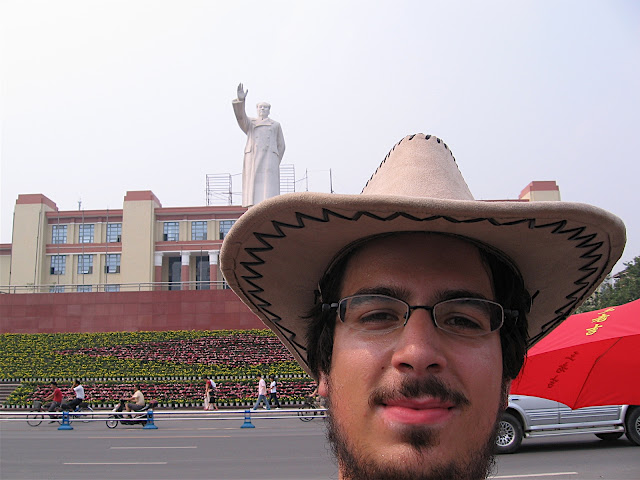The world is not sending enough troops to the Democratic Republic of Congo because of discrimination, a former top UN official has told the BBC.
There is "inbuilt discrimination when it comes to Africa", said Jan Egeland, pointing to the world's response to crises in the Middle East and Europe.
(...)But Mr Egeland said this was not enough for DR Congo, which is almost the size of western Europe.
He referred to diplomatic peace efforts as a "seminar".
"There was not this indecisiveness in the Balkans, Iraq or the wider Middle East," the former UN aid chief told the BBC's Network Africa programme. -BBC
Wow. Where to begin. First, of course, he has no proof or data to back up his claim that this the "lack of action" due to "racism" or "discrimination" as he claims. Second, the world's largest peacekeeping force is in DR Congo, there are 17000 soldiers with another 3000 being added as we speak. It seems Mr Egeland would not be happy before the whole country was run by the UN. Third, his claim that there was no indecisiveness in the Balkans or Iraq is pure stupidity. America waited years before getting involved in Bosnia, months before getting involved on the land in Kosovo and they spent more than a decade watching sanctions kill 500 000 children in Iraq in the 1990s doing very little except fill the pockets of UN officials.
Here is a story. A few weeks ago, when the rebels were closing in on Goma, the government soldiers were losing control of the city and all hell was breaking lose. Now you have to understand that Goma is the epicenter of the UN and NGO effort. If a city in DR Congo should be protected by the UN, it is Goma. When I was there 2 years ago, the place was swarming with UN peacekeepers (mostly Indian if I remember right). During the rebel advance, there was this story (unfortunately one among many) about this woman being raped by government soldiers in her home a few hundred meters from the UN base. She was in the city with the most heavy UN presence in the country with the world's largest peacekeeping force and she was staying close to the UN base, yet she and countless other women during that week were raped and many others were killed. The peacekeepers did nothing, they were powerless.
The lesson is not that the peacekeeper are bad people. They're in a tough situation and they try to do what they can. But they can not police the country and they can not be everywhere, even in the city with the biggest UN presence. The lesson is that a peacekeeping force can not be the solution, as there is no way that a UN operation could be everywhere and prevent everything in a country the size of DR Congo.
The solution should be political. But the UN will never achieve a political solution when they support the government almost without conditions and, through the government, the Hutu militias that committed the genocide in 1994. As long as the UN brush aside this problem, peace will not go anywhere. The Tutsis learned the hard way in 1994 to never ever trust the international community for their security. If they want to be safe, they will have to do it themselves.
The solution should not more white men trying to police a country, it should be diplomatic. After Somalia 1993, Iraq and Afghanistan it should be obvious that armed humanitarian intervention is not the answer to the world's problems.




No comments:
Post a Comment